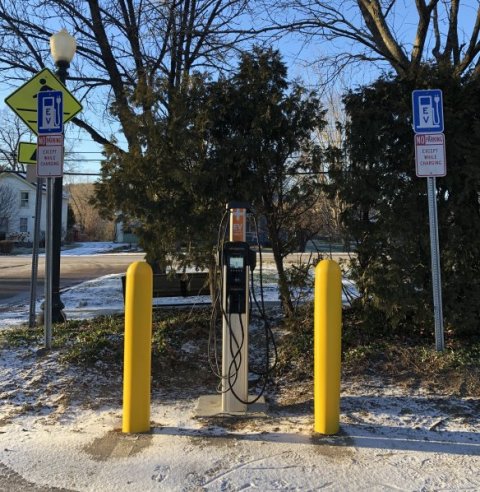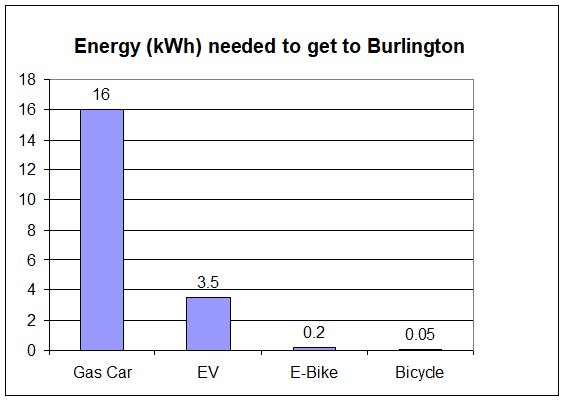 Share rides, Carpool, combine trips, walk, use a bike, or public transport or a combination.
Share rides, Carpool, combine trips, walk, use a bike, or public transport or a combination.
See the Green Mountain Transit Bus schedule

Active Transportation (walk, bike) is more healthy!
 Consider owning or leasing an electric vehicle (EV). Information here;
Consider owning or leasing an electric vehicle (EV). Information here;
Lifetime costs of an EV, despite the higher sticker price, can save drivers money in the long-run. Graphical data here. Maintenance costs are minimal.
An EV is better than a gasoline car because generating electricity in a power station is more efficient than generating power in a car engine. Also, electricity is increasingly coming from renewable sources.
 Or how about an electric bike? – ‘loaners’ available from Local Motion.
Or how about an electric bike? – ‘loaners’ available from Local Motion.
How much energy is used for a one-way trip from Richmond to Burlington (12 miles)?

Assumptions and sources of data:
Gasoline Cars:
A 27 mpg (gasoline) car is using 35.25kWh per gallon so 27/35.25 miles per kWh
(Based on Energy in a gallon of gasoline: 35.25 kWh)
Buses get about 8 mpg, so with 4 passengers they use about the same energy a one car with one passenger.
Electric Cars: – typically 3 – 4 miles/kWh
Based on Electric car range and efficiency (2019 – EPA) and All-Electric Car Energy Consumption (EPA)
Electric Bicycles – Get about 58 miles/kWh.
More power would let you go faster of course, with the higher risk of crashes and injury.
Muscle-power bicycles – (assuming 12 mph, generating 50W)
An adult of good fitness can produce between 50 and 150 watts for an hour of vigorous exercise.
Airplanes: 2 passenger miles/kWh
This depends very much on the distance (take-off uses a lot of fuel) and how many passengers are carried. Newer aircraft get about 95 passenger-miles per US gallon). A 25 mpg car with four passengers gets 2.8 passenger miles/kWh, similar to an airplane.
One F-35 burns 1500 gallons of fuel per hour = 0.008 miles/kWh at 500 mph.
